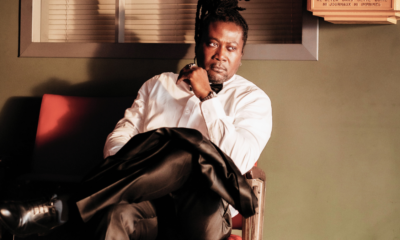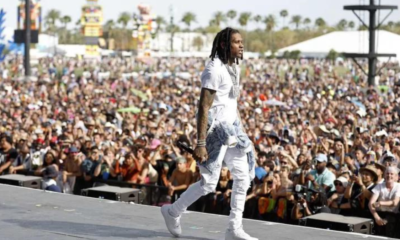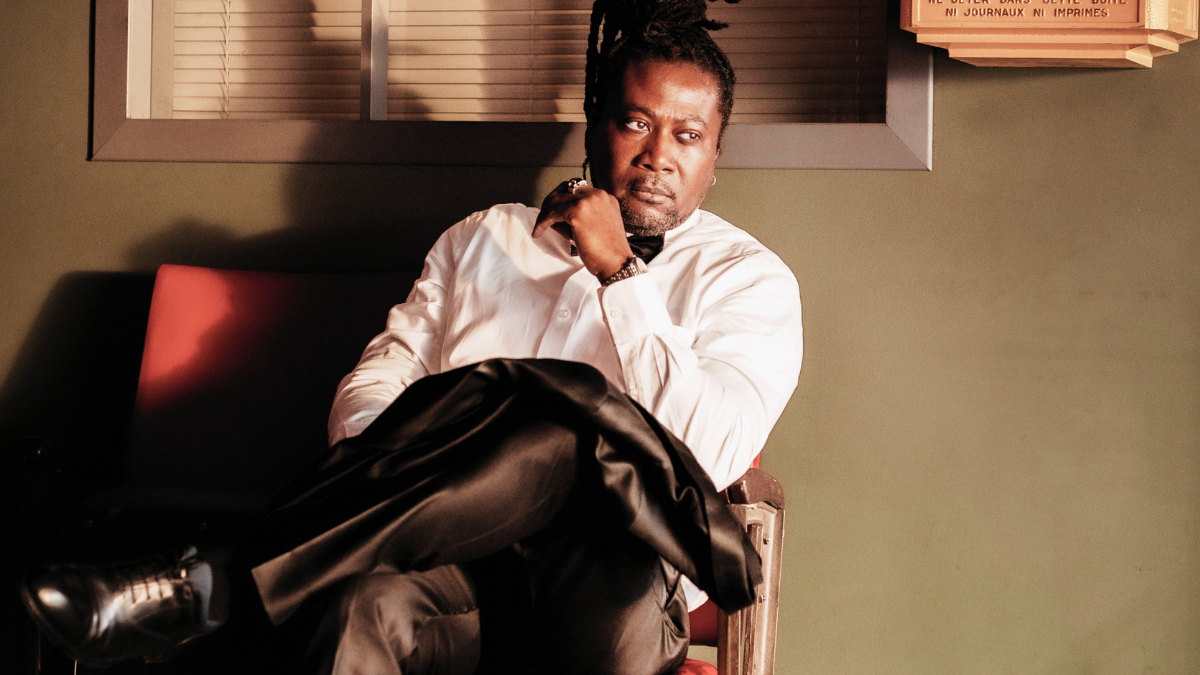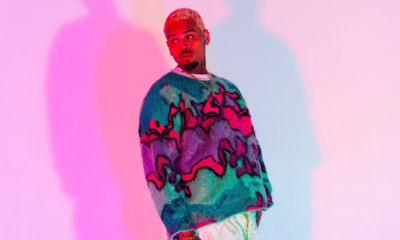The Black Music Collective’s inaugural event celebrated the past, present and future achievements of Black music and embodied the Recording Academy’s ongoing work to celebrate and advance Black music and its creators and professionals across the industry.
When it comes to music and culture, constant evolutions and unique developments from Black artists have challenged and pushed conventionality into a place of many groundbreaking firsts.
From Megan Thee Stallion, the first woman rapper to perform at the Oscars, to Cardi B, the first solo female rapper to win the GRAMMY for Best Rap Album, to Mickey Guyton, the first Black female solo artist to be nominated for a GRAMMY in the Best Country Solo Performance category — a host of impactful changes has been slowly yet surely bubbling up to the surface.
These cultural progressions run in parallel to the work being done by the Black Music Collective (BMC), a group of prominent Black music creators and professionals dedicated to amplifying Black voices within the Recording Academy and the wider music community, while also serving as the strong currents driving this sea change.
On Saturday, April 2, the night before the 2022 GRAMMYs, at Resorts World Las Vegas, the BMC hosted the Recording Academy Honors Presented By The Black Music Collective, an official GRAMMY Week 2022 event and the inaugural Black Music Collective in-person event. The newly minted, must-attend gala — sponsored by Binance, IBM, Mastercard, Hilton, GREY GOOSE Vodka, and Amazon Music — honored legendary artists like Jimmy Jam, MC Lyte, D-Nice, and the founders of the Black-founded, health-focused record label Love Renaissance (LVRN). The event also featured performances from Chlöe Bailey, Jimmie Allen, Cordae, Muni Long, and Summer Walker, who each took the house on an emotional roller-coaster ride of body-moving grooves; Adam Blackstone served as the event’s musical director.
This powerful celebration of Black music and entertainment also welcomed industry execs like LVRN Records executive vice president/general manager and LVRN Management partner Amber Grimes; 300 Entertainment co-founder and CEO Kevin Liles; Universal Music Group senior director of Diversity, Inclusion & Belonging and former Co-Founder & Executive Sponsor of the BMC Jeriel Johnson; and Recording Academy CEO Harvey Mason jr.
Celebrating the past, present and future achievements within Black music and culture, the BMC gala honored 12-time GRAMMY-winning artist John Legend with the first-ever Recording Academy Global Impact Award for his personal and professional achievements in the music industry. The historic night amplified the critical role of Diversity, Equity & Inclusion (DEI) in pushing the music industry forward to the hundreds of artists, GRAMMY nominees and winners, Recording Academy members, and influential music executives in attendance.
“It’s been a long time coming, and I don’t feel great saying that,” Mason Jr. said at the event, referencing how long it took for this gathering to arrive. “But now we’re finally here, so let’s celebrate.”
As stars walked the Black carpet, they were welcomed by a small gallery of iconic images curated by photographer-turned-entrepreneur Johnny Nunez. Following opening remarks from GRAMMY-winning superproducer and event presenter Jimmy Jam about the future of the GRAMMYs, the night shifted to highlight the many ways the Recording Academy plans to combat negativity using passion and music.
“The playing ground has not been level,” honoree MC Lyte said during her acceptance speech. “But I’m proud of the progress we’ve made.” “Despite the continued injustice and inequality in our industry and society at large,” Lyte continued, “there’s no better time to be a Black creator than now.”
Founded in 2020 and developed by Riggs Morales and former Co-Founder Jeriel Johnson, along with Recording Academy executives like CEO Mason jr., Co-President Valeisha Butterfield Jones and Vice President of Diversity, Equity & Inclusion Ryan Butler, the Black Music Collective has become a hub for creative geniuses and business leaders to set unified goals, align on a shared agenda, and build community. Butterfield Jones made that agenda crystal clear through gratitude and gravitas.
“Life is short, and this assignment is purpose-driven. We are advancing this mission, and the assignment is bigger than me and any of us individually,” Butterfield Jones said at the event. “It’s about independent music creators, emerging artists, music people — all music people — and driving real and meaningful change we can all feel from the inside out.”
Club Quarantine architect D-Nice spoke from the heart about how the world gravitated toward his virtual DJ sets during the height of the COVID-19 pandemic lockdown and underlined the great role John Legend played in spreading the word to millions of people. Club Quarantine truly became a communal therapeutic experience around the world.
“Club Quarantine is not really about D-Nice, the DJ,” he said. “It’s about a community. People come together and they share conversations in the chats. I’m just in the background trying to create a space to feel comfortable to get together. I say this like I’ve said before, ‘Black music saved the world.'”
For decades, Black music has made topics trend and barriers end. It has empowered generations to change their family legacies while giving a voice to the voiceless. “American music is Black music,” Bruno Mars, who recently swept the 2022 GRAMMYs, said back in 2017. Today, there isn’t a place, genre or sound that hasn’t been influenced by Black music and culture.
From Muni Long wowing the crowd with her show-stopping remake of Boyz II Men‘s “End of the Road,” titled “Boys II Men,” to Saweetie saluting the importance of women throughout hip-hop’s 50-year history to Chlöe Bailey proving to be a cultural phenomenon coming into her own, the Recording Academy Honors Presented By The Black Music Collective proved that Black people will power the next wave of creativity for years to come.
Accepting the inaugural Recording Academy Global Impact Award, John Legend, a “GETO” winner and the honoree of the night, summed up the power and influence of Black music in his speech. “Black music is and has been the rhythm, the root, the inspiration, the innovation behind so much of the world’s popular music. It doesn’t exist without us,” he said.
“Our art and music can help movements find their footing and voice,” Legend continued. “Our art and music can help activists, the people closest to injustice, and lead the way forward to equality and opportunity.”
A new slew of firsts to never forget.
Beyond the glitz and glamor of the night, it’s undeniably clear that the Recording Academy Honors Presented By The Black Music Collective was more than a who’s who of the entertainment industry: It was a flag-planting occasion that embodied the Recording Academy’s ongoing work to celebrate and advance Black music and its creators and professionals across the industry.


 Business3 years ago
Business3 years ago
 Business2 years ago
Business2 years ago
 Business2 years ago
Business2 years ago
 Business3 years ago
Business3 years ago
 Business3 years ago
Business3 years ago
 Business3 years ago
Business3 years ago
 Business3 years ago
Business3 years ago
 Business3 years ago
Business3 years ago






































